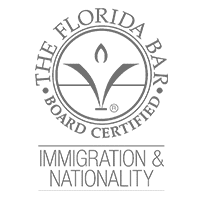HISTORY HAS SHOWN THAT U.S. EMPLOYERS, COMPANIES AND ENTREPRENEURS CAN GREATLY BENEFIT THE UNITED STATES THROUGH THE PERMANENT IMMIGRATION OF THE INDIVIDUAL TO THE COUNTRY.
It’s no surprise that studies have shown that immigrants are vital to our country. That’s no surprise since the United States was founded by immigrants, and has continued to benefit from waves of immigrants. Such as the U.S. space program led by NASA.
It is well-known that the success of the Apollo space program was impacted by individuals from more than a dozen countries who had migrated to the U.S. Examples include the immigrants or children of immigrants who contributed to NASA’s space program, such as Wernher Von Braun and Eugene Cernan. Wernher Von Braun was originally from Wyrzysk, a town in the German Empire (now Wyrzysk, Poland). Eugene Cernan was the 11th person to walk on the moon, and was the son of Czechoslovakian immigrants.
What is truly astonishing is that immigrants or their children have led the creation of 40 percent or more of Fortune 500 companies listed in the United States. Many of our most “American” companies — Procter & Gamble, AT&T, Kraft, Colgate-Palmolive, U.S. Steel, Philip Morris, TIAA-CREF, DuPont, Goldman Sachs, Pfizer, International Paper, Kohl’s, Capital One, Honeywell, PG&E, and Nordstrom — were founded by immigrants. Leading companies such as Google, Intel, eBay, Yahoo!, Sun, Qualcomm — all feature an immigrant-founder. It is impossible to dismiss the benefit of permitting the best and the brightest to immigrate to the U.S. The revenue generated by Fortune 500 companies founded by immigrants of children of immigrants is greater than the GDP (gross domestic product) of every country in the world outside the U.S., except China and Japan.
Employment-Based Green Card Categories
The options that a U.S. employer, U.S. company, or an entrepreneur has to choose from are varied, based on experience, skill, education, merit, and/or financial ability. Employment-based immigration enables a foreign worker to obtain a green card through one or more of the following types of processes:
A required step for most employment-based green cards, ensuring that hiring a foreign worker will not negatively impact the wages or working conditions of U.S. workers.
Specific occupations pre-certified by the Department of Labor, such as nurses and physical therapists, that bypass the traditional labor certification process.
- EB-1, First Preference Workers
- Extraordinary Ability Persons: Professionals recognized for exceptional expertise in their field.
- Multinational Managers or Executives: Leaders in international companies transferring to the U.S.
- Outstanding Professors and Researchers: Academics with significant contributions to their field.
- EB-2, Second Preference Workers
- Advanced Degree: Workers with postgraduate degrees or their equivalent.
- Exceptional Ability: Individuals with a proven track record in science, business, or the arts.
- National Interest Waivers: Workers whose presence in the U.S. benefits the nation.
- EB-3, Third Preference Workers
- Professionals: Individuals with at least a bachelor’s degree.
- Skilled Workers: Workers with at least two years of training or experience.
- Unskilled Workers (Other Workers): Workers filling roles for which qualified U.S. workers are unavailable.
- EB-4, Special Immigrants
- Other Special Immigrants: Includes certain employees of U.S. foreign missions, retired employees of international organizations, and more.
- Religious Workers: Ministers and other religious professionals.
- EB-5 Investment Immigration
- EB-5 Developers: Companies creating jobs and contributing to economic growth through U.S.-based development projects.
- EB-5 Investors: Individuals investing a substantial amount of capital in a new or existing U.S. business.


















